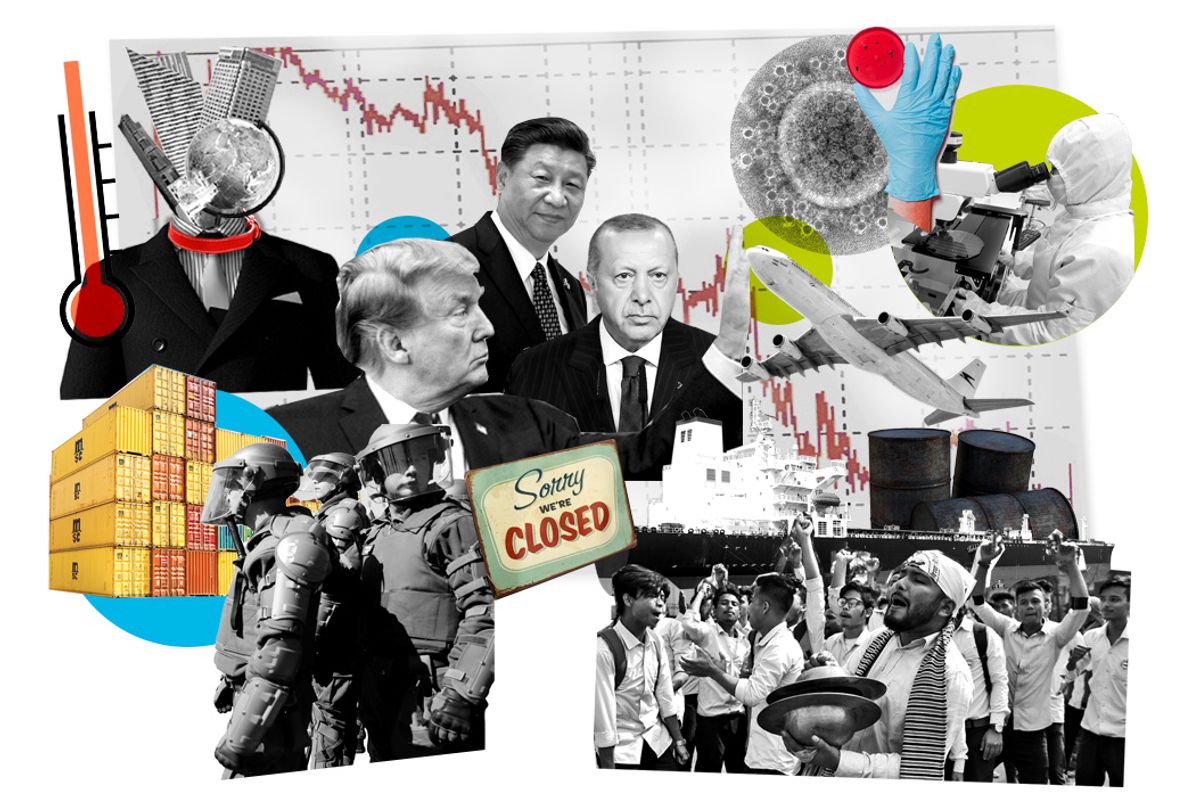On January 6, we wrote about the annual Global Top Risks report from Eurasia Group, our parent company. At the time, there was not yet a single confirmed death from COVID-19 in China or anywhere else.
That was 11 weeks ago.
You can now read a coronavirus-related update to that report, which details the many ways this global pandemic has altered the world's biggest political risk stories.
Some highlights…
Back in January, Eurasia Group's Top Risk #1, titled "Rigged!: Who Governs the US?" argued that the legitimacy of the 2020 US elections will be widely questioned, given that political polarization in the US has become so intense that millions of Americans now believe that courts, federal agencies, the media and US political institutions like the Federal Reserve have no credibility.
Coronavirus has made this problem worse by forcing a number of upcoming primaries to be postponed and making it nearly impossible for candidates to campaign. It's not clear if the party nominating conventions will take place. But most importantly, the coronavirus itself has become a bone of partisan contention in ways that hamper the unity that is needed to defeat it: a recent poll shows that Democrats see the threat in much more urgent terms than Republicans. Meanwhile, some Republicans have charged that media coverage of COVID-19 is a ploy to discredit Donald Trump.
Top Risk #2, titled "The Great Decoupling," detailed how the US-China rivalry would cause the two countries to decouple their economies from each other, not only in strategic technologies like semiconductors, cloud computing, and 5G, but in broader trade and investment too. COVID-19 has given fresh urgency to Western companies' efforts to cut China-dependent supply chains.
Top Risk #3, titled simply "US/China" focused on the growing likelihood of clashes over national security, influence, and political values. Sure enough, the coronavirus crisis now has President Trump and other US officials referring to COVID-19 as the "China Virus," since it originated inside China, while some Chinese officials claim that actually the US planted the virus in Wuhan. In a better world, COVID-19 might have encouraged the US and China to work together to contain the threat it poses. But for now, each side's approach to coronavirus is stoking acrimony with the other.
We encourage you to read the full report, because it also includes Eurasia Group's updated thinking on how COVID-19 can aggravate US-EU tensions, overwhelm India's public services and worsen sectarian tensions, undermine governments in Iran, Iraq, and Syria, inflame public anger in Latin America, and add one more area of unpredictability and political pressure in Turkey.
On all these subjects, here's a video of Ian Bremmer in his own words.


















